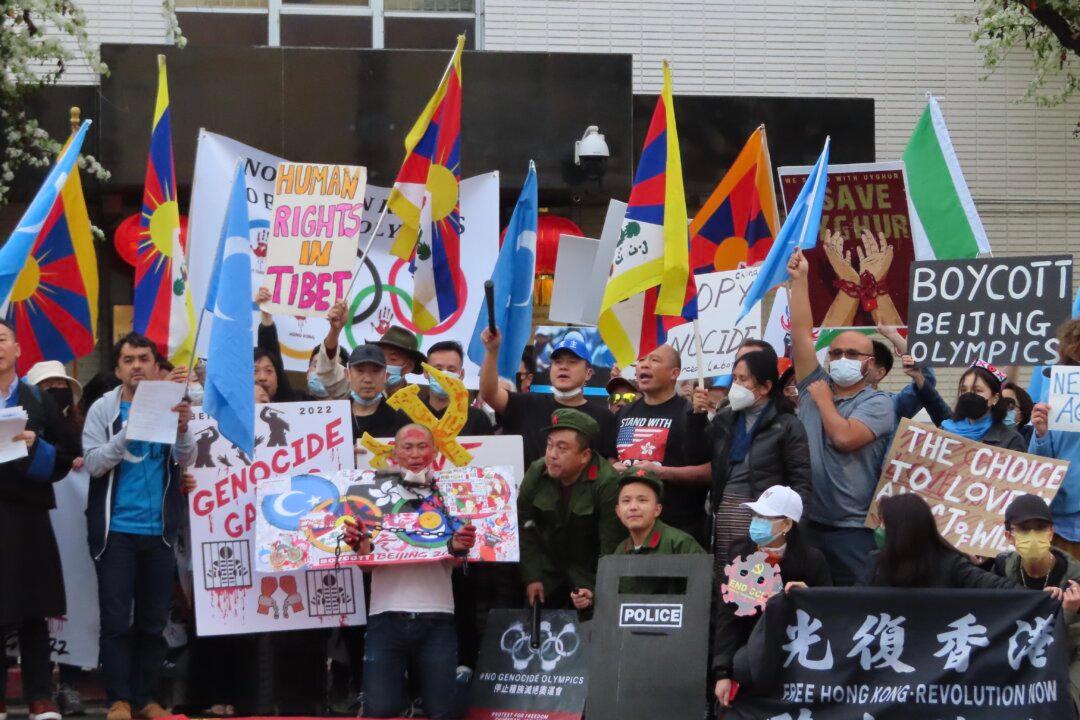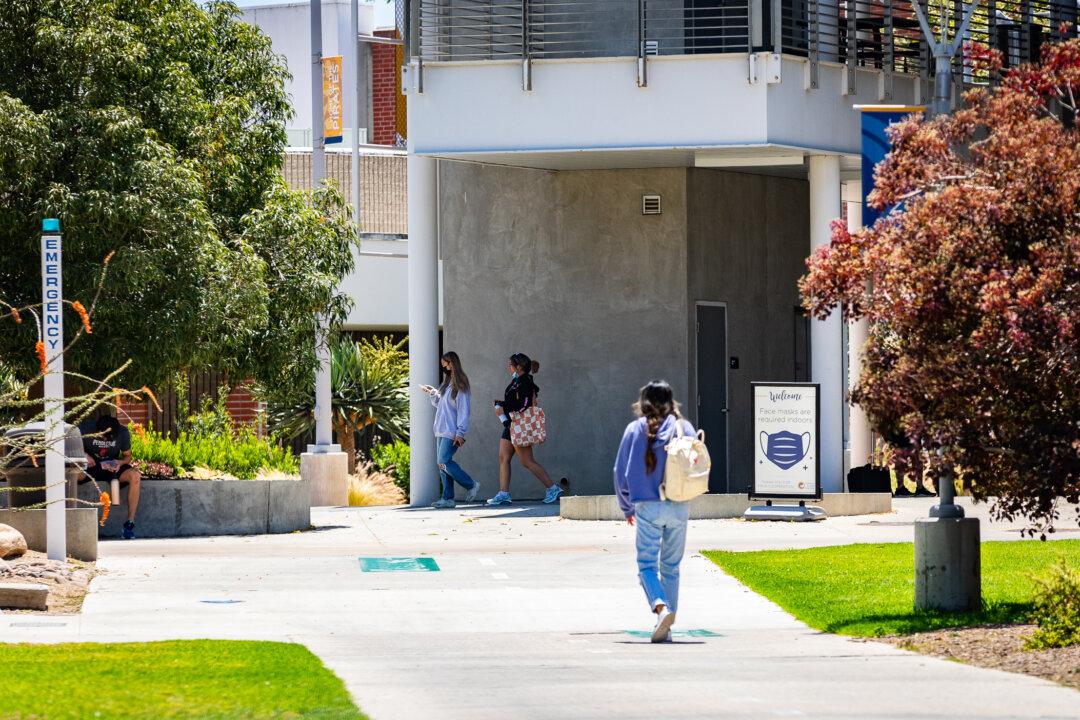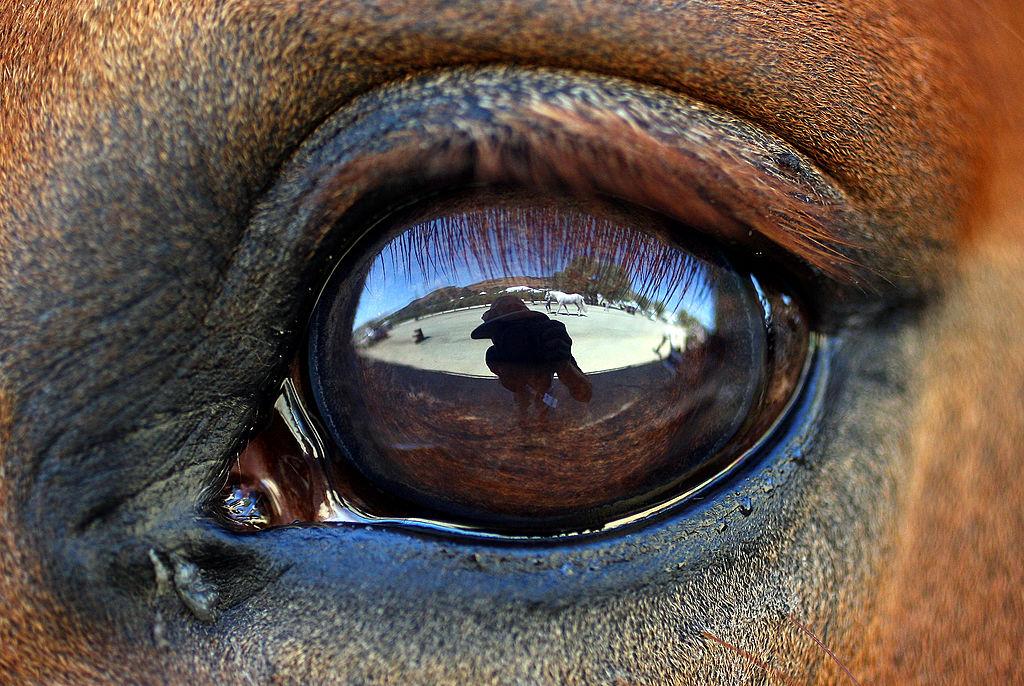LOS ANGELES—A crowd of human rights activists chanted “Free Tibet, free Uyghur, free Taiwan, free Hong Kong, free East Turkestan” in front of the Chinese Consulate in downtown Los Angeles on the eve of the Beijing Olympics.
On Feb. 3, a coalition of 15 human rights groups gathered outside 443 Shatto Place, one of China’s two diplomatic centers on the West Coast of the United States, calling for boycotts of the Beijing Winter Olympics as the Chinese regime’s ongoing human rights abuses stand in stark contrast to the spirits represented by the international sporting event.
“The Beijing 2022 Olympics and its broadcast by NBC and other media groups will legitimize the Chinese government’s exceptionally repressive policies and atrocious human rights record,” Tao Tenzing Dhamcho, who represents the International Tibet Network, told The Epoch Times.
Dhamcho referred to the Beijing Olympics as the “CCP’s [Chinese Communist Party] Genocide Games” and said that more than 150 Tibetans have immolated themselves because “they see no future for themselves.”
Kevin Young, the president and founder of Santa Barbara Friends of Tibet, told The Epoch Times that he founded the organization after his trip to Nepal, where he met many Tibetan refugees.
“I learned about their story, how they had to flee their country after the [Chinese] Communist Party destroyed monasteries and basically turned [Tibet] into a resource extraction colony.”
The groups said the CCP—with its long list of human rights violations against multiple ethnic and religious groups—is an undeserving host of the Olympic Games.
“We disagree with China hosting the Beijing Olympics because the Olympics is for the spirit of unity, liberty, and brotherhood. ... [The Chinese regime] doesn’t uphold any of these values of human rights and dignity,” Karma Gelek, vice president of Tibetan Association of Southern California, told The Epoch Times.
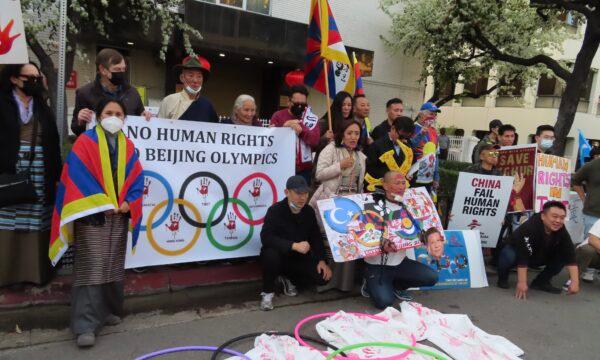
Jay Sun, of the Democracy Party of China, agreed with Gelek and said his mother, who is still in China, has been constantly harassed by the police because of his participation in pro-democracy events in the United States.
“Olympic Games represent people’s pursuit of liberty. When it is hosted in Beijing, it is not fair to Taiwanese, Hong Kongers, and Tibetans because it seems like the Chinese government is supported by the international community,” Sun said.
Human rights groups around the world also protested the 2008 Beijing Olympics for months before its opening in August. Even within China, hundreds of monks peacefully protested in March 2008 in Lhasa, the capital city of Tibet, and led a wave of more than 100 protests across the Tibetan plateau, according to Free Tibet, a human rights nonprofit. In the aftermath, thousands of Tibetans were detained, and more than a hundred were killed in police violence.
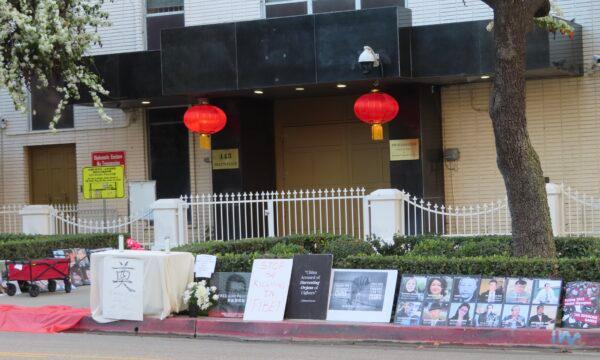
The Chinese Communist Party has a long and growing record of human rights atrocities. Besides political dissidents and human rights lawyers, among the major groups persecuted are Tibetans, Falun Gong practitioners, Muslim Uyghurs, and Hongkongers.
Since Hong Kong’s handover from British to Chinese Communist rule in 1997, its freedom and autonomy have been increasingly suppressed. The extradition bill proposed in 2019—which would have unprecedentedly allowed Hong Kong citizens to be transferred back to Beijing to face trial and potentially put activists, journalists, and human rights lawyers at risk—drew hundreds of thousands to protest on the streets. In 2020, Beijing responded with the draconian national security law, which makes any acts deemed as undermining CCP’s authority punishable by up to life imprisonment.
